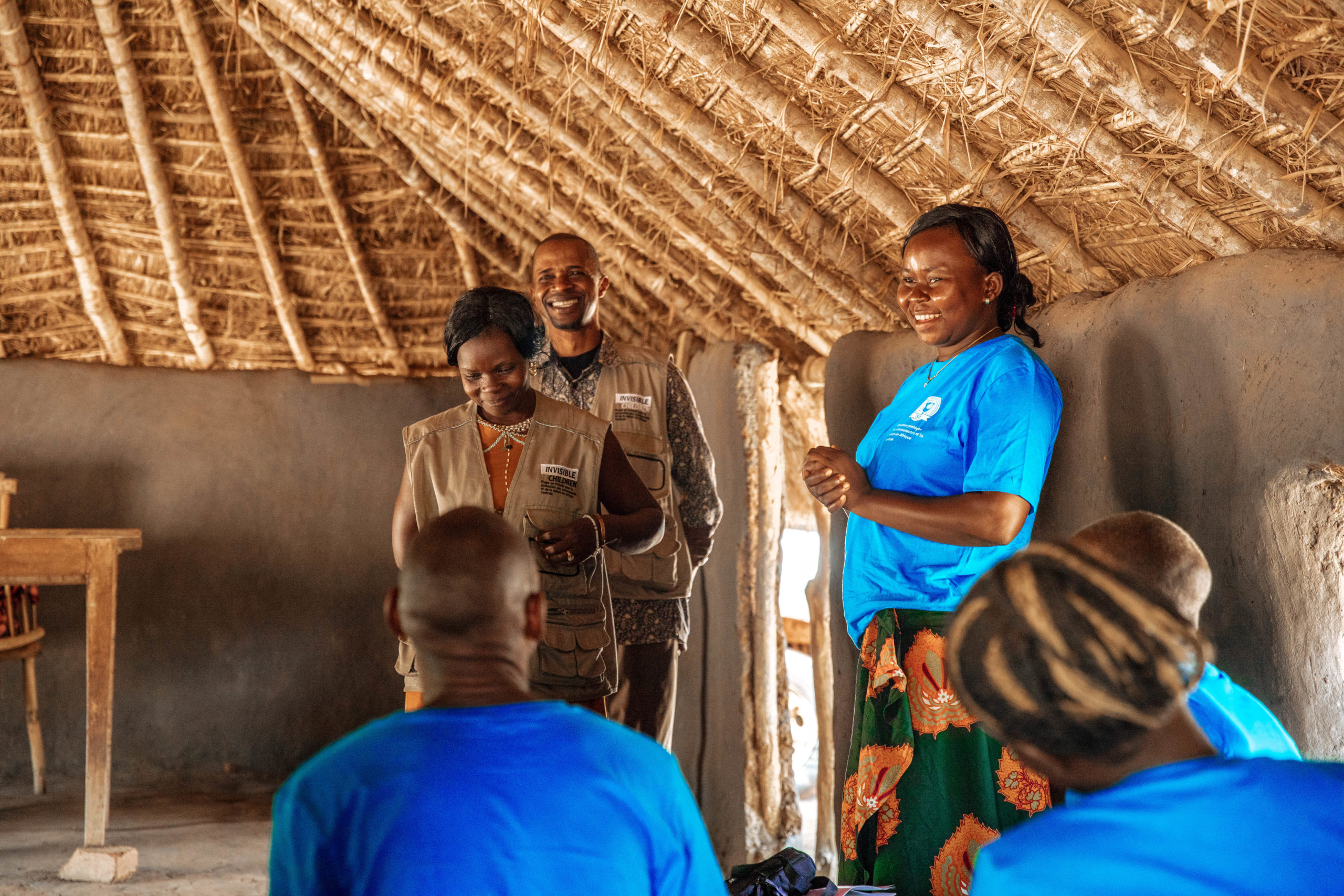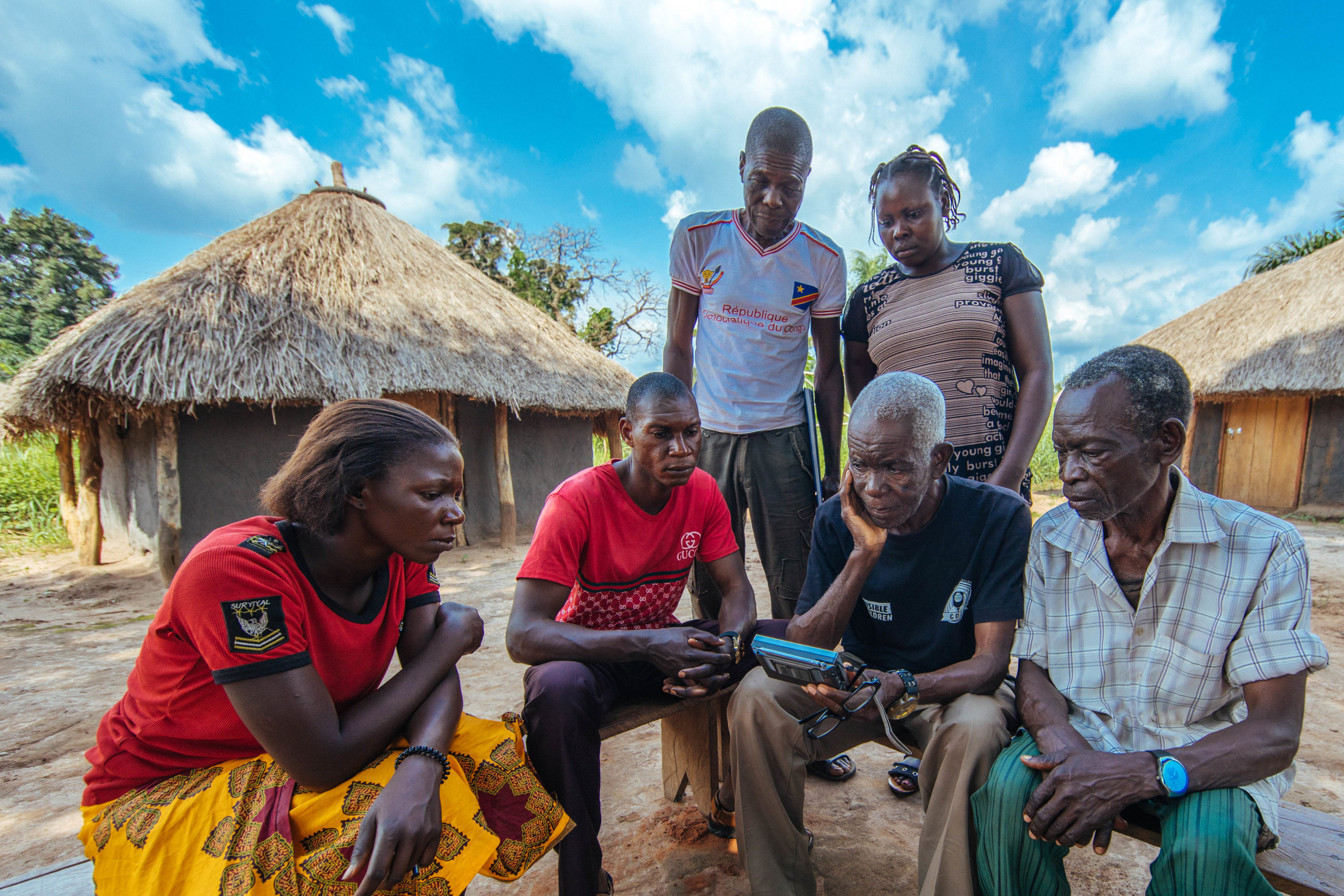Gender is a critical factor that affects how populations are impacted by armed conflicts and the experiences and needs of individuals may vary greatly by gender and sex during times of crisis. However, women and other vulnerable groups are largely underrepresented in global conflict resolution and peacebuilding processes, although research shows that peace agreements are more durable when women are included. We at Invisible Children and the local organizations we partner with are committed to gender equality and are taking steps to prioritize and increase women’s inclusion and participation in all areas of our work to help central African communities prevent violence and become more resilient.
With your support, we’re equipping female peacebuilders and raising awareness about gender-based violence in central African communities impacted by violent conflict.
In communities across the Central African Republic (CAR), and the Democratic Republic of Congo (DRC), we train and support locally-led peace committees helping them develop plans for how their communities can peacefully transform conflicts, safely respond to threats to their safety, and work together to reduce their vulnerability to violence. Despite the global trend of women’s exclusion from national and international peace processes, we have worked to make sure women are adequately represented and play active roles in local peace committees. Today, over 820 women are serving as members of Invisible Children-supported peace committees.

We’re making strides and seeing incredible progress on this as part of our Community Protection through Community Connection (CPCC) project, funded by the US Department of State. As part of this project, we support eight peace committees in an area of eastern CAR that’s been severely impacted by armed group violence in the last several years. In the last 2 and a half years, 37 women have been elected as members of these peace committees and 14 women currently hold leadership positions. These female members of these peace committees are also highly active and, in many communities, women are becoming increasingly involved in peace committee-led conflict mediation processes. This is incredibly important not only because their involvement increases the likelihood of success, but also because women are being seen and seeing themselves as leaders in their communities.
Beyond encouraging peace committees to be inclusive spaces, we’re also equipping local communities with the tools and knowledge to recognize and prevent gender-based violence (GBV). GBV harms individuals and communities and can be both catalysts and consequences of violent conflicts. Through the CPCC program and the USAID-funded Community Resilience in Central Africa (CRCA) Activity, we have completed over 200 gender-focused trainings with peace committee members. These workshops are designed to raise awareness among both men and women in the community of how to recognize and safely prevent GBV, how to seek our support for survivors, and explain the legal rights and laws that protect women and other vulnerable groups. They also provide safe spaces for survivors of violence to share their experiences through simulations, focus groups, and participatory talks.
Peace committee members, both male and female, are excited to put the tools that we are providing into action. Following a recent training in CAR, a male member of the local Peace Committee told our team,
“What I have learned is like the word of God. I will go and share this information with my community and invite them to prevent harm and the abuse of women. Today, my community and I are thrilled and edified.”

In addition to working directly with peace committees, we are also reaching out to the wider community. Audio messages, many of which are recorded by women and young people, are also broadcast over FM radio and disseminated through micro-SD cards to raise awareness about GBV and the psychosocial support that survivors may need to heal. Supported by hands-on work of local peace committees these messages make it possible for thousands of Central African and Congolese civilians to access information about how they can prevent violence and support women.
We are so grateful for the incredible central African women and men who are working hard to build safer, more inclusive communities. We’re committed to continually seeking out ways that we can better support their visions. Your donations help make that possible.
Some programs described in this blog are made possible with the support of the American People through the United States Agency for International Development (USAID). The contents of this post are the sole responsibility of Invisible Children and do not necessarily reflect the views of USAID or the United States Government.

Think people should hear about this?